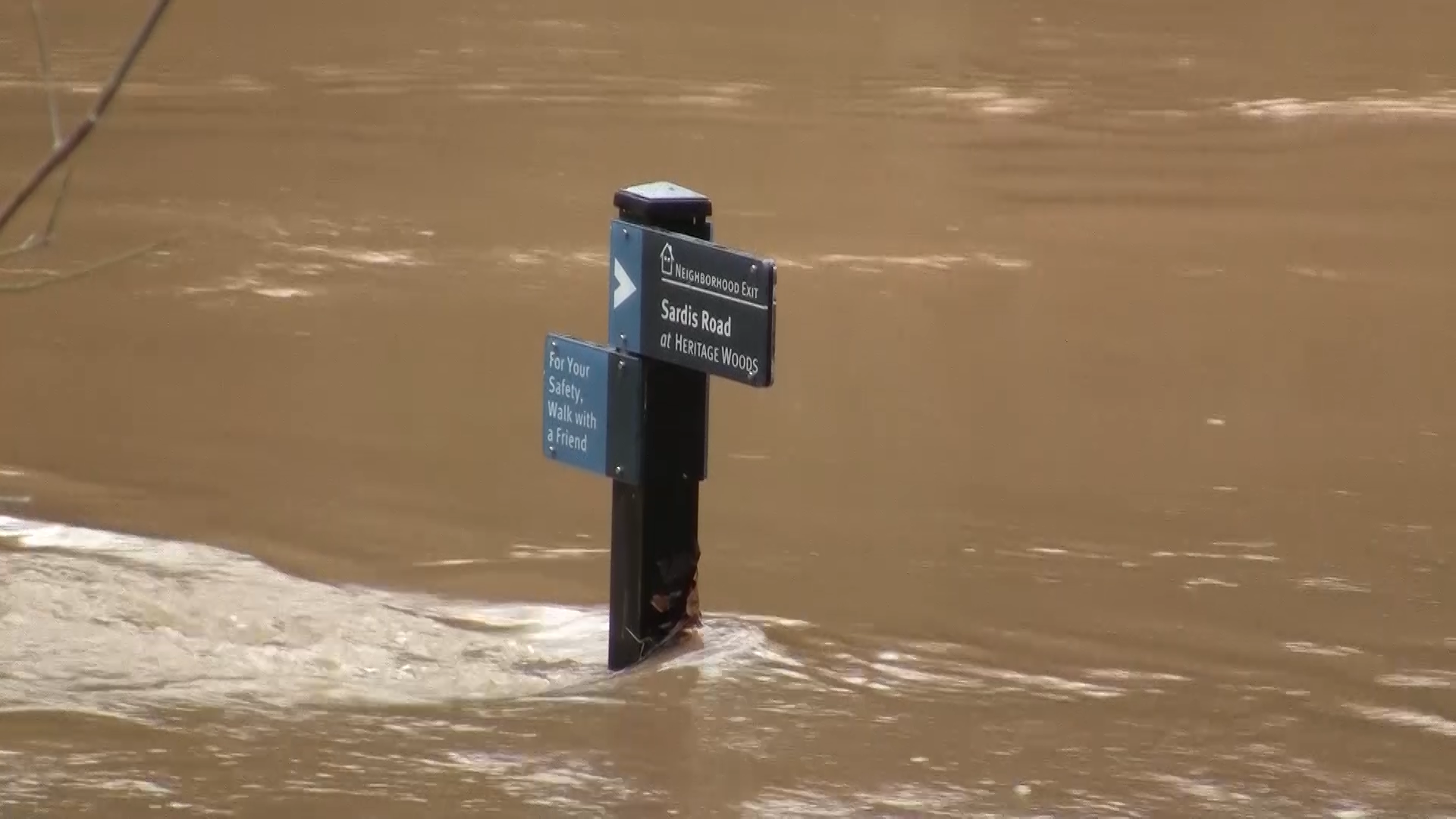CHARLOTTE, N.C. — When you think of a hurricane, you probably think wind but it's the rising water and flooding that can be the most deadly and costly in a storm.
This week is the first week of hurricane season and it's also called Hurricane Preparedness Week. Earlier this week, WCNC Charlotte reported on the risks of dead and diseased trees to your home and why your insurance company could deny a claim if one falls.
People buying homes right now are in bidding wars over properties and they are paying, in some cases, $50,000 over the asking price. But are these buyers double-checking the little things, which are really big things? For example, if the property is at risk for flooding?
Let's start with a simple fact. Rising water, just one inch of it, can cause $25,000 in damages. That's just an inch, and you don't need a hurricane to cause that kind of damage.


WCNC’s Bill McGinty met a homeowner named last summer when a blocked city of Charlotte storm drain flooded his home nine times. The homeowner doesn’t live in a designated flood zone, yet it happened.
"Homeowners [insurance] says this is not their problem," he said.
Last summer McGinty also helped a family that was getting water from a nearby housing development under construction in Tega Cay, South Carolina. Their home didn’t flood, but their property sure did.
In Mecklenburg County alone, there are approximately 2,900 homes and businesses located in the floodplain. Although many of these homes and businesses are built above the 100-year flood level, the county says many are impacted during large rain events. Do you live in one? You can use this interactive map to see if your property is at risk for flooding. It's a great resource for anyone considering buying a house.
Flood insurance is a national program, but you can buy policies through carriers, maybe even yours, but you must inquire about it. In North Carolina, the average cost of a yearly flood policy is $814, just $68 a month. In South Carolina, it’s cheaper, at $671 a year.
"Is it out of pocket for most people? Completely out of pocket," said Steve Shatner with the Compass Agency. "So are landslides and mudslides."
And waiting until there is a storm, won’t help you. Policies aren't written once a storm gets a name, and usually, it's a 30-day wait.
People are often confused by what is considered a flood. For example, if a pipe bursts in your house and floods it, that's covered by your homeowners insurance. But if a nearby creek or a clogged storm drain floods and water comes in, that's called rising water and homeowners will not cover it.
If you have questions, you should always ask your insurance agent. That's why they're there.
Policies are not written once a storm gets a name. It’s usually a 30 day wait.
Contact Bill McGinty at bmcginty@wcnc.com and follow him on Facebook.

